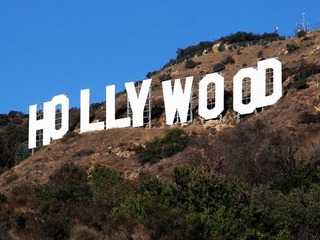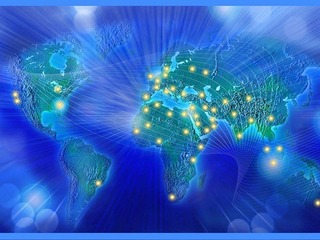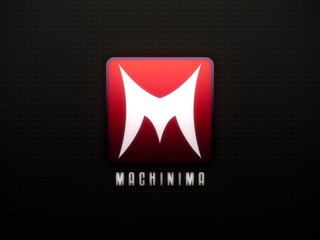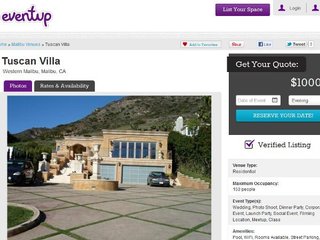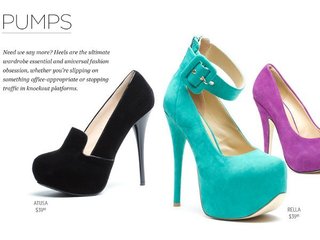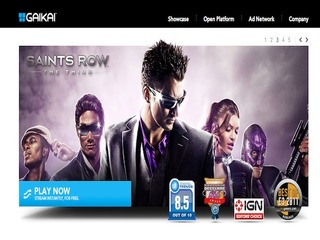DrFirst buys prior authorization automation platform Myndshft
This will allow DrFirst to accelerate its growth in the specialty medication space
Read more...
Los Angeles and Silicon Valley. The two areas share a state, and a common trait of creativity. In other ways, however, they couldn't be more different from each other.
Los Angeles is, of course, the area that people automatically asssociate with Hollywood, and the making of television shows and movies. It's, perhaps unfairly, known as a place where superficiality reigns and people are celebrated for looking good rather than being smart. Silicon Valley, on the other hand, is closely associated with technology and, let's be honest, more brains than beauty. (No casting agent in his right mind would ever put Bill Gate's face on a movie poster for his looks. Sorry Bill!)
Funny thing is, Los Angeles is actually taking what it is best known for (beautiful people) and using them to its advantage in the tech world. As I noted in a recent article about L.A.-based start ups, many actually use celebrities.
For example, there is BeachMint, a social commerce company founded by MySpace co-founder Josh Berman and Diego Berdakin which features six celebrity-curated, subcription-based sites from actress Kate Bosworth, Mary-Kate Olsen and Ashley Olsen, Jessica Simpson, Rachel Bilson and Justin Timberlake.
(Berman will be keynoting our LA event held on May 30 at the famed and historic Hollywood Roosevelt hotel. Want to hear Berman's lessons learned scaling his company, mingle with top-notch entrepreneurs and investors and discover new promising startups? Register to the event now for the March Madness tickets!)
And there seems to be quite more happening. To wit, SV Angel's David Lee recently moved his homebase to LA. And, angel-turned-VC Chris Sacca hired Matt Mazzeo from Creative Artists Agency to start looking at deals for LowerCase Capital.
Some pretty hot startups are also emerging, including EventUp, which raised $1.8 million in a June 2012 seed round led by Lightbank, with help from NEA, New World Ventures, and additional angel investors; Machinama, which raised a $35 million venture round in May 2012, led by Google, and included existing investors Redpoint Ventures and MK Capital; Shoedazzle, which recently raised $6 million in debt and equity financing in October 2012; and DogVacay, which raised a $6 million Series A in November 2012 from Benchmark Capital.
In a 2012 report by the Startup Ecosystem, the research firm Startup Genome concluded that "there is a healthy opportunity for LA to establish itself as an alternative to Silicon Valley."
We sure think LA is a great alternative and a great place to have a startup (the weather in Santa Monica is awesome after all). And, we wouldn't be holding Splash LA there if we didn't think this way.
But why is it a great alternative and will it ever catch up to Silicon Valley? In 2012, there were 212 VC investments in LA, for a total of $2.08 billion. That's compared to 1,149 deals that raised $10.86 billion from venture capitalists in Silicon Valley.
That's a big gap in funding. And we're going to explore that question. But first, here's a look at how the LA startup ecosystem, particularly relative to Silicon Valley is shaping up.
LA vs. SV
A report conducted by research firm Startup Genome, called the Startup Ecosystem Report 2012 ranked the top 20 startup ecosystems, and Los Angeles came in third place, behind only Tel Aviv and, of course, Silicon Valley.
To rank each region, the report breaks it down into eight important categories:
Silicon Valley came in first in every category, but Los Angeles did alright for itself, especially when it came to company performance, talent, output and trendsetter, coming in the top five for each. At the same time, the city came in 11th place for mindset and differentiation, and 13th place for support.

Average entrepreneur
The average age of an entrepreneur in Los Angeles is slightly younger than their Silicon Valley counterparts (32.55 to 34.12) but also less educated. For every one college dropout, Los Angeles has two entrepreneurs with a Masters and a PhD. Silicon Valley's ratio is 1 to 2.5.
Los Angeles entrepreneurs also do not work as hard as their Silicon Valley counterparts, with an average of 9.64 hours a day, compared to 9.95 hours.
Silicon Valley has a very slight lead when it comes to percentage of serial entrepreneurs, 55% compared to 56%. But L.A. has the clear lead when it comes to percentage of non-technical founding teams, 21% to 16%.
Entrepreneurs in Los Angeles are also slightly more likely to be female, with a total of 12%, compared to only 10% in the Valley.
Some emerging female start up entrepreneurs in Los Angeles include:
Earlier this month, three female entrepreneurs launched a new fragrance blending bar in Pasadena called Original Scent. The founders of the company are Nicole Winnaman of Entertainment Branding Agent, whose clients include Justin Timberlake and Ellen DeGeneres; Marley Majcher, Celebrity Event Planner whose clients include Sofia Vergara and Pierce Brosnan; and niche perfumer Sarah Horowitz.
Investment trends for the Los Angeles area
The total amount put into the LA-based scene has increased over the years, according to data from Pricewaterhouse Coopers and the National Venture Capital Association.The amount being invested into L.A. companies has doubled since 1995, but the region has actually fallen behind other cities in that time.
Back in 1995, the Los Angeles/Orange Country region actually saw the second highest amount of capital of any region, behind only Silicon Valley, raising over $1 billion, compared to $1.8 billion for the Valley. The region did not come close to having the highest number of deals, though, with the Midwest, New England, the Northwest, the NY metro, Southeast, and Silicon Valley, all seeing more deals. L.A. only saw 92.
The region was quickly surpassed by other areas of the country, though, and it fell behind regions like New York and New England.
It was simply a case of the market going in directions that were not condusive to L.A.'s strengths. Starting in the mid-90s, when consumer-based properties, biotech and communication companies were popular, entrepreneurs flocked to cities that had those strengths, Neal Hansch of Rustic Canyon Partners told me in an interview, including New England and New York.
"By 1999, the promise of the Internet attracted a new crop of entrepreneurs to Silicon Valley and investment in the region skyrocketed nearly 10-fold. During the same period, New England grew quickly and edged out Southern California as the next most attractive area for venture capitalists to invest and for the following five years, New England laid undisputed claim to the runner up title," Nate Redmond, managing partner of Rustic Canyon Partners, wrote in an article for Forbes last year.
But, now that categories that L.A. specializes in are gaining traction, the region is on its way back.
"I think the growth in dollars raised by local start-ups reflects macro trends that are playing right in the hands of the traditional 'power alleys' for our area (ie. digital media, gaming, ecommerce, adtech/direct marketing)," Hansch said.
"For example, the increasing broadband penetration, move of video consumption online and maturity in the online advertising ecosystem has provided an ideal environment for new digital media companies to blossom. Some of those local leaders include Hulu, Machinima, Maker Studios."
In fact, from 2011-2012, when the total amount of VC capital in the U.S. fell to $26 billion from $29 billion, Los Angeles was only of only a few regions to take in more money in 2012 than 2011, along with the Northwest and San Diego (which you can also lump in with L.A. since together they make up the SoCal ecosystem).
In addition, Hansch said, the ecosystem is maturing, and a number of accelerators and incubators have been popping up in the last few years to nuture talent.
Redmond outlined three reasons he thinks L.A. will be the next Silicon Valley:
"Over the last five years Southern California closed the gap with New England and in 2012, entrepreneurs in Southern California once again attracted more investment than any other region outside of Silicon Valley. More than New England and nearly twice as much as New York," he said.
(Note: Redmond is lumping L.A. and San Diego together. When taken separately, L.A. is actually number three, and it still falls behind New York.)
Findings in the report
The report found that, in many ways, L.A. startups and Silicon Valley startups are the same. They have the same amount of ambitiion, and they "both tackle similarly large total addressable markets, and concentrate less on ‘new’ markets and ‘niche’ markets."
They also face similar key challenges: customer acquisition, building the product, funding, and building the team. On top of that, their revenue streams are the same as well: subscription, transaction fees and advertising.
Of course, there are also differences.
When it comes to Los Angeles startups, they are 58% more likely to have consumers as their primary payer and 43% less likely to have a small or medium size enterprise as their primary payer, as compared to those in Silicon Valley.
L.A. startups are also more 16% less likely to raise VC than startups in Silicon Valley and more likely to be self-funded or raise money from friends and family.
Some potential problems in L.A.
Despite what you make think, things are not always so sunny in Los Angeles, and there are some reasons to be concerned about L.A.'s ability to attract new talent.
"There is no strong ID in Los Angeles, no brand that I recognize," Robert Scoble, Startup Liaison Officer for Rackspace, told me in an interview.
Whereas cities like Austin and New York have strong centralization, Los Angeles is too spread out. It has a number of accelerators, but the scene is too decentralized. For that reason, he said, it is having trouble attracting young people, despite having a good university system.
"There is no place to fly to to meet 100 different startups," he said. "There is no one place to gather these geek brands."
Ultimately, he said, Los Angeles is strong in the entertainment field, but it has not proven that if it can build out in other areas.
Startup Genome also points to where L.A. might have issues is the mindset category, where it ranked number 11.
"Even though LA is fairly established compared to most other Startup Ecosystems - the entrepreneurial mindset and in particular the risk tolerance in LA is lower than of other top ecosystems," Startup Genome said.
To give an example, LA entrepreneurs are 10% less likely to work full time before product market fit, as compared to entrepreneurs in Silicon Valley.
So can LA reclaim its No 2 spot behind Silicon Valley?
Los Angeles, with its growing ecosystem, is definitley on the upswing. It has a lot of momentum on its side, as one of the few areas in the country that saw its amount invested in 2012. If any region seems poised to take over the Valley, it would have to be L.A.
"Los Angeles has long been overshadowed by Silicon Valley in terms of high-growth technology startups. The domination of Los Angeles by Hollywood and associated industries has also made it difficult for startups to shine. However the LA startup ecosystem is gaining increasing momentum and now ranks third globally. Although the ecosystem has 70% less startups than Silicon Valley, it has a healthy funnel of startups moving through the startup lifecycle. There is a healthy opportunity for LA to establish itself as an alternative to Silicon Valley," the report concluded.
We'll see what others say about that. Tune in for my future stories which will feature prominent LA-based investors sharing their thoughts on the future of the LA startup scene.
(Note: Vator's startup event and competition will heading down to LA on May 30. Register now to get your Early Bird tickets. Or join the competition to get on stage and win $25k-plus worth of prizes!)
(Image source: https://represent.la/)
This will allow DrFirst to accelerate its growth in the specialty medication space
Read more...The company initially raised $3 million in seed funding when it launched in October
Read more...This is the company's first fundraising since 2019 and brings its total capital to $103M
Read more...Startup/Business
Joined Vator on
DogVacay.com is a community marketplace that addresses the $5B market for dog-boarding and pet-sitting. Instead of paying for a crowded and overpriced kennel, our users book with experienced hosts who watch dogs in their own homes. In two months since launch the we have gained national coverage with thousands of approved hosts.
We provide multiple layers of quality control, a comprehensive insurance policy, emergency support, photo updates, and other pet services like daycare and walking.
We were founded in 2011 by a husband and wife team who boarded over 100 dogs in their home to make extra money while saving for their weddin. We are now venture capital funded by First Round Capital, Science, and several angels.
Startup/Business
Joined Vator on

Joined Vator on

Joined Vator on
Managing Director, MEST Incubator. Former General Partner with Rustic Canyon Partners (RCP), an early-stage focused investment fund with $500MM under management